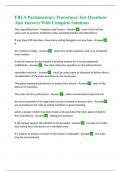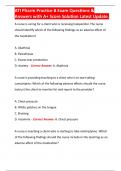Institutions and governance
of the EU
Master in European and International Governance
2020-2021
,Table of Content
Class 1: Introduction
• Objective of the session
• Getting to know each other
• Practical info
• Activities and contact hours
• Grading
• The final exam
• The course schedule
• Summary of the key ideas of the course
• The European Integration Process
o The EU Treaties
o From deepening to widening: the EU’s enlargements
o How are laws made in the EU
Class 2: dynamics of decision-making
• Small warm-up exercise about important EU institutions
• The EU institutions
• The mandatory readings
• How do EU institutions decide?
• What is supranational centralization and new modes of governance?
• Are there other ways of decision-making?
• What was the impact of the covid-19 pandemic on EU decision-making?
o Corona and adaptations in the EP and the Council
o Corona and adaptation in the European Commission
• How democratic and efficient is the EU?
• Group play – small group settings
• The efficiency of EU institutions
• The different view – the EU is quick to regulate, slow to adapt
2
,Class 3: contemporary theories of and challenges to European
Integration
• The puzzle for ‘new intergovernmentalism’
• Intergovernmentalism
• Post-functionalism
• Neofunctionalism
• What are the three types of spillovers?
• Group work on mandatory reading
• Eurocrisis
o Eurocrisis - an overall comparison
• Migration crisis
• Brexit
• Illiberalism
• Overall conclusions
• Rule of law – how to assess it?
• The answer – it all depends
• Discussing rule of law
• The rule of law crisis in Hungary
• Why is rule of law important in and for the EU?
• Rule of law is everywhere in the EU
• The EU’s reaction to the ‘rule of law’ crisis
• Clarifying Art 7 TFEU
• Keleman’s text: the authoritarian equilibrium
• Why the EU faces an ‘autocracy trap’
• What the EU may or may not prevent
Class 4: disintegration vs. deeper integration
• The Brexit process
o The formal procedures to leave the European Union
o Brexit – what has happened so far?
o UK-EU relations – why a Brexit became possible
o Why remain?
o Why leave?
o Why did the British vote ‘leave’ in 2016? (Hobold)
o Arguments against direct democracy
o Arguments for direct democracy
o EU-UK relations: future scenarios
• … deeper integration, or: what is the future for the EU
o Why does the EU not define a ‘finalité’ of the European integration process?
o Four possible outcomes (Laffan)
o Why is disintegration (not) likely?
o Why is a piecemeal adjustment (not) likely?
o Why is functional federalism (not) likely?
o Why is a United States of Europe (not) likely?
o Intervening factors shaping the future of the EU
3
, Class 5: EU institutions ‘inside-out’ – debating democracy and
efficiency with EU officials
• Democracy in the EU
• Can a ‘European demos’ be created?
• How to proceed with democracy in the EU?
• The European Parliament
• Preparing the debate
• The panelists
• Debate
• Questions
Class 6: economic governance and the Eurocrisis
• The euro celebrating 15 years – the institutional perspective
• Part 1: the development and functioning of the eurozone
o Milestones in the establishment of the Euro
o Core features of the Economic and Monetary Union
o Why introducing a common currency?
o The EMU today
o The Euro in the international system
o How is the EMU ‘governed’?
o Stability and Growth Pact (late 90s)
o “European Semester” – whole year surveillance and implementation exercise
• Part 2: the Eurocrisis
o The early Euro cooperation experience
o Another problem: the EU is not an optimum currency area (Enderlin)
o How did the crisis build up? (Enderlin)
o A different perspective: Euro forces Europe to go the wrong way (Nölke)
o Why is a harmonization of European economic and social model not
desirable? (Nölke)
o The Eurocrises and Europe’s (democratic) dilemma (Crum)
o Group work
o What are the options now?
o What are the most important reforms linked to euro?
o What to do according to Nölke?
o Is the EU failing forward?
o Why was the EMU incomplete?
o What could be a solution?
4
of the EU
Master in European and International Governance
2020-2021
,Table of Content
Class 1: Introduction
• Objective of the session
• Getting to know each other
• Practical info
• Activities and contact hours
• Grading
• The final exam
• The course schedule
• Summary of the key ideas of the course
• The European Integration Process
o The EU Treaties
o From deepening to widening: the EU’s enlargements
o How are laws made in the EU
Class 2: dynamics of decision-making
• Small warm-up exercise about important EU institutions
• The EU institutions
• The mandatory readings
• How do EU institutions decide?
• What is supranational centralization and new modes of governance?
• Are there other ways of decision-making?
• What was the impact of the covid-19 pandemic on EU decision-making?
o Corona and adaptations in the EP and the Council
o Corona and adaptation in the European Commission
• How democratic and efficient is the EU?
• Group play – small group settings
• The efficiency of EU institutions
• The different view – the EU is quick to regulate, slow to adapt
2
,Class 3: contemporary theories of and challenges to European
Integration
• The puzzle for ‘new intergovernmentalism’
• Intergovernmentalism
• Post-functionalism
• Neofunctionalism
• What are the three types of spillovers?
• Group work on mandatory reading
• Eurocrisis
o Eurocrisis - an overall comparison
• Migration crisis
• Brexit
• Illiberalism
• Overall conclusions
• Rule of law – how to assess it?
• The answer – it all depends
• Discussing rule of law
• The rule of law crisis in Hungary
• Why is rule of law important in and for the EU?
• Rule of law is everywhere in the EU
• The EU’s reaction to the ‘rule of law’ crisis
• Clarifying Art 7 TFEU
• Keleman’s text: the authoritarian equilibrium
• Why the EU faces an ‘autocracy trap’
• What the EU may or may not prevent
Class 4: disintegration vs. deeper integration
• The Brexit process
o The formal procedures to leave the European Union
o Brexit – what has happened so far?
o UK-EU relations – why a Brexit became possible
o Why remain?
o Why leave?
o Why did the British vote ‘leave’ in 2016? (Hobold)
o Arguments against direct democracy
o Arguments for direct democracy
o EU-UK relations: future scenarios
• … deeper integration, or: what is the future for the EU
o Why does the EU not define a ‘finalité’ of the European integration process?
o Four possible outcomes (Laffan)
o Why is disintegration (not) likely?
o Why is a piecemeal adjustment (not) likely?
o Why is functional federalism (not) likely?
o Why is a United States of Europe (not) likely?
o Intervening factors shaping the future of the EU
3
, Class 5: EU institutions ‘inside-out’ – debating democracy and
efficiency with EU officials
• Democracy in the EU
• Can a ‘European demos’ be created?
• How to proceed with democracy in the EU?
• The European Parliament
• Preparing the debate
• The panelists
• Debate
• Questions
Class 6: economic governance and the Eurocrisis
• The euro celebrating 15 years – the institutional perspective
• Part 1: the development and functioning of the eurozone
o Milestones in the establishment of the Euro
o Core features of the Economic and Monetary Union
o Why introducing a common currency?
o The EMU today
o The Euro in the international system
o How is the EMU ‘governed’?
o Stability and Growth Pact (late 90s)
o “European Semester” – whole year surveillance and implementation exercise
• Part 2: the Eurocrisis
o The early Euro cooperation experience
o Another problem: the EU is not an optimum currency area (Enderlin)
o How did the crisis build up? (Enderlin)
o A different perspective: Euro forces Europe to go the wrong way (Nölke)
o Why is a harmonization of European economic and social model not
desirable? (Nölke)
o The Eurocrises and Europe’s (democratic) dilemma (Crum)
o Group work
o What are the options now?
o What are the most important reforms linked to euro?
o What to do according to Nölke?
o Is the EU failing forward?
o Why was the EMU incomplete?
o What could be a solution?
4











